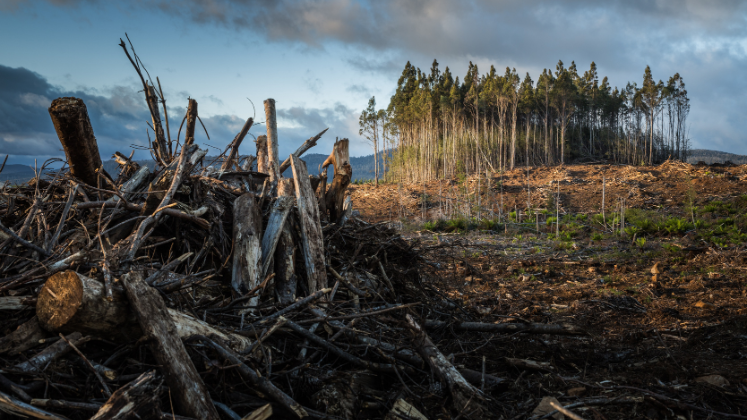In Ending Fossil Fuels: Why Net Zero is Not Enough, Holly Jean Buck argues that the framework of net zero and its concentration on emissions diverts public and policy attention from the fundamental task of ending the use of fossil fuels to ensure effective and lasting climate change mitigation. Reviewing the book ahead of the start of COP26, Sibo Chen recommends this thought-provoking analysis of the barriers to decarbonisation to anyone concerned about the looming climate catastrophe.
This review originally appeared on LSE Review of Books. If you would like to contribute to the series, please contact the managing editor of LSE Review of Books, Dr Rosemary Deller, at lsereviewofbooks@lse.ac.uk.
Ending Fossil Fuels: Why Net Zero is Not Enough. Holly Jean Buck. Verso. 2021.
 It feels almost cliched these days to hear the warning that ‘climate change presents the biggest challenge modern humans have ever faced’. After all, everyone has been living with an ongoing crisis since COVID-19’s global outbreak back in early 2020. There is mounting evidence indicating that the pandemic’s significant economic cost has given rise to a climate delay discourse that portrays climate change as a secondary concern to economic recovery.
It feels almost cliched these days to hear the warning that ‘climate change presents the biggest challenge modern humans have ever faced’. After all, everyone has been living with an ongoing crisis since COVID-19’s global outbreak back in early 2020. There is mounting evidence indicating that the pandemic’s significant economic cost has given rise to a climate delay discourse that portrays climate change as a secondary concern to economic recovery.
Nonetheless, the past few months have also highlighted how increasing and intensifying climate hazards like floods, heatwaves and wildfires have disrupted governments’ pandemic responses. The situation has deteriorated to the point where even the International Energy Agency (IEA) has issued a dire warning about a looming climate catastrophe if the world does not prevent a post-lockdown surge in emissions. This warning, in line with many other messages from climate experts and environmental organisations, emphasises the critical need to reach and sustain ‘net zero’ as early as possible.
But will net zero be sufficient to avert the impending climatic catastrophe? This is the central question that Holly Jean Buck examines in her new book, Ending Fossil Fuels: Why Net Zero is Not Enough. Buck argues that the net zero framework’s concentration on emissions diverts public and policy attention away from the more fundamental issue: effective and lasting climate change mitigation requires an unwavering end to the fossil fuel sector.
The book discusses the importance of initiating a planned phaseout of fossil fuels in three parts. Part One, ‘The Cruel Optimism of Net Zero’, elaborates the appeals and drawbacks of net zero. While acknowledging that reaching net zero by 2050 is an ambitious target in contrast to the current pace of global decarbonisation, chapters in this part argue that the concept’s embrace of balance and stability creates ambiguity that the fossil fuel sector may exploit.
Specifically, Part One invites readers to envision two possible scenarios that have achieved net zero: a ‘cleaner fossil world’ versus a ‘near zero world’. In the former scenario, fossil fuels with lower carbon intensity are still produced, but net zero emissions are maintained via carbon storage and other means of sucking up tremendous amounts of carbon. By contrast, the latter scenario eliminates the use of fossil fuels from most human activities and thus only requires the construction of modest infrastructure for generating negative emissions.
While both scenarios achieve net zero emissions, they require divergent mindsets on purposefully phasing out fossil fuels. According to Buck, the major risk of naively accepting net zero rhetoric is that it may lock the planet into ‘a permanent condition where fossil fuels continue forever, re-interpreted as part of sustainable carbon management’ (29). In such a society, both public and policy attention is redirected toward quantifying and balancing emissions. Consequently, the economic and political structures legitimising carbon-intensive economic growth, responsible for today’s planetary climate crisis, remain intact.
Part Two, ‘Five Ways of Looking at Fossil Fuel Phaseout’, evaluates five approaches for initiating a planned decline of fossil fuels, an extremely difficult undertaking that will require close coordination across all sectors of society. Accordingly, the approaches outlined in this part do not operate in isolation. Only through collective efforts can society begin to delegitimise the material and ideological underpinnings of fossil fuel production and consumption.
Three ideas stand out among the numerous ones discussed in Part Two. First, ending fossil fuels requires cultural changes beyond consumerism. In countries like the United States and Canada, fossil fuels are firmly ingrained in the social imagination of ‘good middle-class life’ since they provide the energy basis for suburban living and vehicle ownership. The biggest barrier to decarbonisation is thus cultural and political structures legitimising fossil fuel dependency as a social norm. Buck proposes instilling public awareness with a discourse on endings and transforming current neoliberal culture into one that plans.
Second, as tech giants such as Apple, Google and Microsoft dedicate greater attention to carbon removal and decarbonisation, there is rising worry about their ultimate power over monitoring, forecasting and even interfering in the environment. According to Buck’s research, what makes many of the solutions offered by tech giants especially problematic — aside from their technocratic tendencies — is how inextricably intertwined these solutions are with fossil capital. Their collective goal is to build a cleaner fossil world without introducing structural changes to capital accumulation.
Third, considering how single-use plastics, toxic chemicals and tobacco are phased out or regulated, it is vital to acknowledge the critical role of social narratives in convincing governments to support decarbonisation.
Buck contends that rural areas’ lack of public support for decarbonisation presents a significant political obstacle. Across North America, for instance, ‘the sense of peripherality experienced in rural areas fuels a dark populism’ (139). Accordingly, the core–periphery dynamic currently characterising capitalist social structures needs to be changed to address rural areas’ shared skepticism and anger about elites and government regulations.
Part Three, ‘A Phaseout Toolbox for the 2020s’, presents a checklist of actions Buck believes are critical for achieving net zero emissions by 2050. Building on earlier chapters’ insights, these action items range from modest policies already in place in some parts of the world (for example, stopping unconventional fossil fuel exploitation) to radical ones, such as putting the fossil fuel sector under public ownership and running it in reverse. Buck expresses a strong preference for government involvement over market mechanisms throughout her discussion of these policy recommendations.
Ending Fossil Fuels offers many refreshing perspectives on climate politics. It makes a strong case that the inherent ambiguity of net zero may result in a world where fossil capital continues to exert its enormous economic and political power over our daily lives. For me, the book provokes thinking about what could be achieved at the upcoming COP26 Summit and why grassroots political power needs to play an essential role in finding climate mitigation strategies that would benefit communities currently under the unsustainable exploitation of fossil capital.
Another merit of the book is its optimism: despite outlining various difficulties confronting the road to net zero, the book presents emerging evidence in Part Three that it is still possible to launch a controlled demolition of the use of fossil fuels over the next decades. To conclude, Ending Fossil Fuels is a thought-provoking analysis of barriers to decarbonisation, a fascinating read for anyone concerned about the looming climate catastrophe.
Note: This review gives the views of the author, and not the position of the LSE Impact Blog, or of the London School of Economics.
Image Credit: Photo by Scott Rodgerson via Unsplash









What does the government do with the carbon tax?